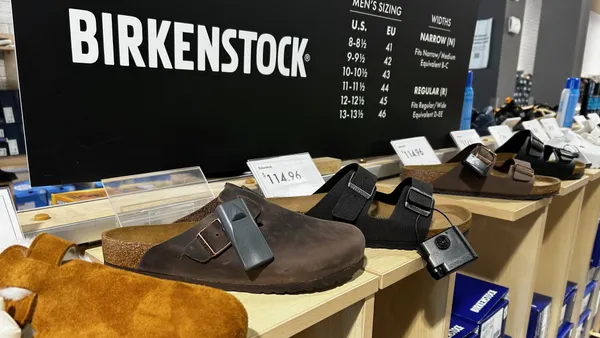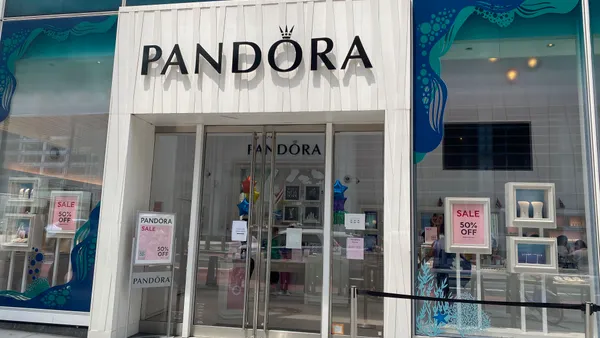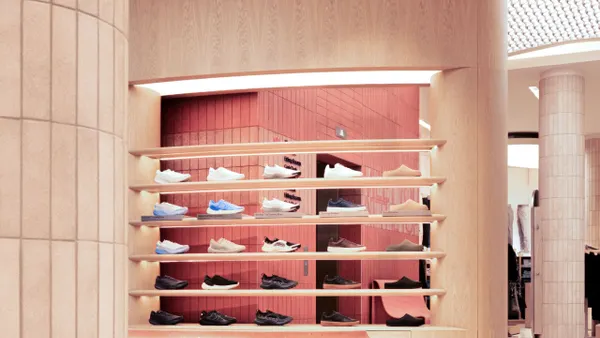Dive Brief:
-
JD.com is planning a luxury retail platform on its marketplace to take on rival Alibaba, the Wall Street Journal reports. Chinese shoppers account for nearly a third of global luxury sales, according to the report.
-
The e-commerce company launched JD Luxury Express its second quarter to provide personalized service for high-end and specialty products, according to a company press release detailing its quarterly results.
-
In June, JD.com was reported to be investing some $397 million into U.K.-based luxury brand marketplace Farfetch, with JD.com CEO Richard Liu taking a seat on the smaller company’s board of directors.
Dive Insight:
Continuing strength in the Chinese economy is one reason that luxury retailers' earnings growth could nearly double this year to 7%, according to a note released in May by Moody’s Investors Service. That's especially important for high-end brands, considering that Moody's analysts also said growth is unlikely to reach the double-digit levels the sector enjoyed between 2010 and 2013.
"JD’s growing strength as China’s largest retailer continues to position us to capture new and expanding market opportunities," JD CEO Richard Liu said in a statement. "As we broaden our range of offerings, including a rapidly growing roster of top international brands, our customer base continues to expand, with female shoppers becoming an increasingly active user base. Looking forward, as JD’s smart technologies and big data help us revolutionize the online shopping experience, our ‘retail as a service’ initiative will further extend the capabilities of our platform to partners throughout China."
JD has been working to do more in fashion and trying harder to compete with Alibaba for somewhat more limited luxury spending opportunities in China. JD.com's star has appeared to be rising over the last year or so, as Alibaba has focused on efforts to distance itself from its reputation as a marketplace that failed to crack down on counterfeit products for a long time — a reputation that would seem to spell doom for any company selling luxury items.
As a result of their tie-up, Farfetch gets to tap into JD.com’s existing luxury-focused courier service, massive logistics network and other capabilities. Farfetch in April announced it had partnered with Gucci on a new 90-minute delivery service for orders placed on its app or website in major cities across the world. While none of those participating cities are in China, JD.com's support may pave the way for nearly immediate delivery in the country.
One of JD.com's major partners in China is the WeChat mobile messaging platform, which has proven to be an avenue for luxury brands like Michael Kors, Burberry and LVMH to communicate with and sell to their customers in China. Farfetch may be the next luxury platform to leverage WeChat in the same way.
China may be a source of strength for luxury retail, but even Moody’s in its report on the sector noted that China's economy is slowing and that new demand is coming from middle class consumers whose spending power is relatively limited. Still, the country's potential for sales and growth is likely why brands are moving forward with platforms and partnerships despite problems with counterfeit sales.
Earlier this month JD rival Alibaba told 180 brand representatives at its Brand Rights Holders Day that it’s beefing up its Intellectual Property Protection (IPP) platform, using data to speed takedown requests from brands and rights holders. Some brands appear ready to give those efforts a chance: Earlier this month Gucci owner Kering said it had dropped its lawsuit against the Chinese e-commerce giant to work together on fighting sales of fakes.














